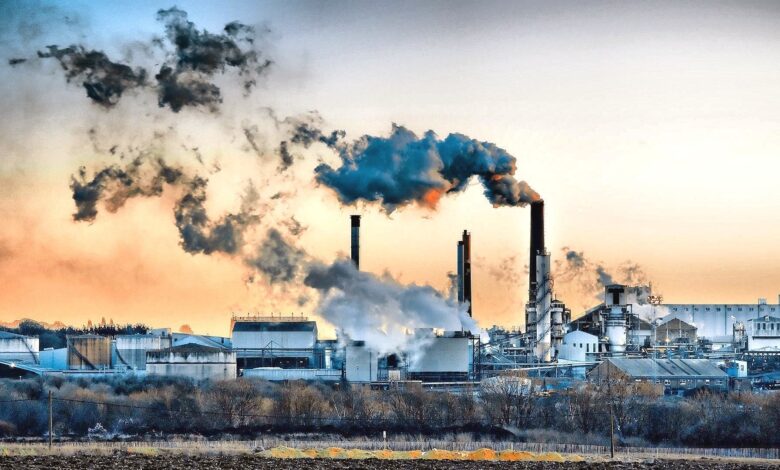The Impact of Industrial Pollution on the Environment and Public Health

In recent years, industrialization has brought significant changes to our lives, making production and consumption more accessible and efficient. However, the rapid growth of the industry has resulted in severe pollution, which poses significant threats to both the environment and public health. In this article, we will explore the impact of industrial pollution on the environment and public health and identify measures that can be taken to minimize its effects.
What is Industrial Pollution?
Industrial pollution refers to the release of harmful pollutants into the environment by industrial activities such as manufacturing, mining, and power generation. These pollutants can take various forms, including chemicals, particulate matter, and waste products, and can cause severe damage to the environment and human health.
Types of Industrial Pollution
There are several types of industrial pollution, including air pollution, water pollution, soil pollution, and noise pollution. Each type has unique impacts on the environment and human health, as we will explore below.
The Impact of Industrial Pollution on the Environment
Industrial pollution has a significant impact on the environment, causing ecological imbalances and damaging natural habitats. Here are some ways industrial pollution harms the environment:
Air Pollution
Industrial activities release harmful gases, such as sulfur dioxide and nitrogen oxides, into the air, leading to air pollution. These pollutants cause acid rain, which can damage crops, forests, and waterways. Additionally, air pollution can harm human health, causing respiratory problems and other illnesses.
Water Pollution
Industrial activities often produce large amounts of wastewater containing chemicals and other pollutants. When these pollutants are discharged into waterways, they can harm aquatic life and affect the quality of drinking water. Industrial pollutants such as lead and mercury can accumulate in fish and shellfish, making them unsafe for human consumption.
Soil Pollution
Industrial activities often result in soil contamination through the disposal of hazardous waste products. The contamination of soil can harm plant growth and wildlife, and the chemicals can seep into the groundwater, making it unsafe for consumption.
Noise Pollution
Industrial activities can generate high levels of noise pollution, affecting the quality of life for both humans and animals. Exposure to excessive noise levels can cause hearing loss, stress, and other health problems.
The Impact of Industrial Pollution on Public Health
Industrial pollution not only harms the environment but also poses significant threats to public health. Here are some ways industrial pollution affects human health:
Respiratory Problems
Air pollution from industrial activities can cause respiratory problems, such as asthma, bronchitis, and lung cancer.
Cardiovascular Problems
Industrial pollution can also contribute to cardiovascular problems, including heart disease and stroke.
Neurological Problems
Exposure to industrial pollutants such as lead and mercury can cause neurological problems, including learning disabilities and developmental delays in children.
Cancer
Exposure to industrial pollutants such as benzene and asbestos can increase the risk of cancer.
Measures to Minimize Industrial Pollution
To minimize the impact of industrial pollution on the environment and public health, various measures can be taken, including:
Use of Clean Energy
Switching to clean energy sources such as wind and solar power can significantly reduce the amount of pollution generated by industrial activities.
Recycling and Waste Management
Proper recycling and waste management practices can prevent the release of hazardous chemicals into the environment.
Adoption of Green Technologies
Adopting green technologies such as electric cars and energy-efficient appliances can significantly reduce the amount of pollution generated by industrial activities.
Enforcement of Regulations
Enforcement of environmental regulations can ensure that industries operate within acceptable pollution limits, minimizing harm to the environment and public health.



